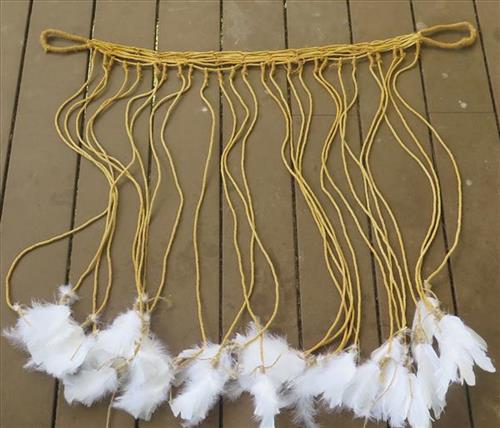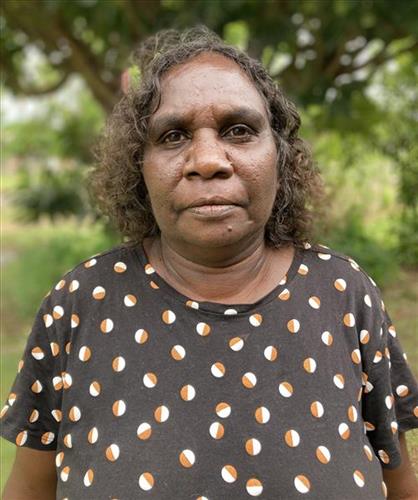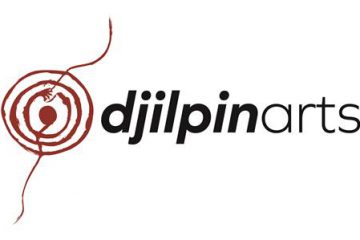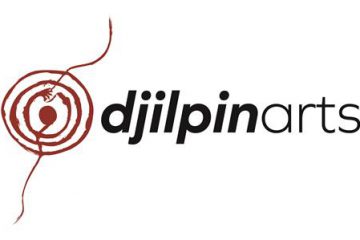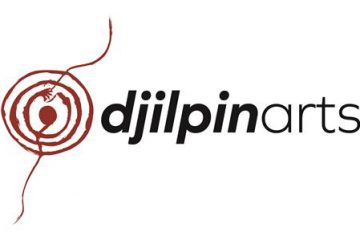221382283478
Dance Belt
Dance belts are an important cultural component of ceremony. This belt has been made predominantly from cotton string, along with kurrajong bush string details on the belt component. This can be seen on the wrap around the two end loops, the detailing holding the dangle components, along with the ties holding the belt bands together. Cotton string has been used for the dangling components, with white cockatoo feathers forming the end detail.
Bush String is incredibly labour intensive to construct. Artists collect Anputput (Kurrajong, pronounced “but but”), and then steam the logs in a fire. Bark is peeled off and the outer darker skin discarded. The softer inner fibre is mashed and separated into usable strips which has a lace-like visual look. From here the strips are rolled – usually on a leg or thigh – and spun into the string form. This alone is very time consuming as the artist needs to create the material from which she weaves. For thicker ropes, this process is repeated so each strand is actually constructed from two pre-constructed strands (four or even more strands in total).
At this point, with a functional material to start with, the artist begins to construct the belt; wrapping, weaving and tying. Raw rope can be colour dyed, or painted using ochre or modern acrylic paint. White cockatoo feathers are often used, along with biddih, or sugar bag bee wax.
